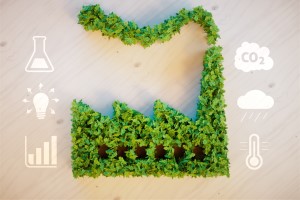
Consumers are becoming increasingly aware of environmental concerns, in addition to their social, nutritional and health expectations. That is why we could see the introduction of the carbon score on consumer-packaged goods.
Read More

Consumers are becoming increasingly aware of environmental concerns, in addition to their social, nutritional and health expectations. That is why we could see the introduction of the carbon score on consumer-packaged goods.
Read More

As we discussed previously, global product management and development should not drag your international strategy. While we identify regulatory compliance management as the biggest business challenge for a CPG organization developing products for international markets, multilingual product data management is a fundamental technological asset. Although providing a global interface is crucial to facilitate the acceptance of the solution amongst international teams, it is not enough.
Read More

The way innovation operates has changed rapidly over the last twenty years, pushed by technological advances. The very concept of innovation has also fundamentally changed. Modern innovation is no longer just a matter of assigning some internal resources to manufacturing products offering some kind of differentiation. A large number of external factors are now added into the mix.
Read More

The nature and composition of products reaching the market nowadays has certainly changed a great deal. From a relatively straightforward offering in the past, with a few variations on a theme, brands are now producing sprawling ranges which introduce a great deal more complexity into formulation.
Read More

In these days of heightened concerns over environmental matters, product life-cycle assessment (LCA) plays a crucial role not only in businesses’ technology choices, but also in their long-term strategies. In addition to products of great nutritional value, consumers today expect higher ethical production standards from manufacturers. LCA means agri-food businesses are better placed to reconcile production performance and environmental friendliness.
Read More

One of the central problems of the consumer-packaged goods industries is to ensure regulatory compliance of products marketed in one or more markets. To do this, companies need to be able to know the new laws and regulations in force that could impact the development of future products.
Read More

When taking part daily in New Product Development (NPD) projects, it may become difficult to take a moment and step back to look at the big picture again. This is what we offer you today. An overview- because this subject could be worthy of thesis- of the constraints or influences that weigh on Consumer Packaged Goods (CPG) development projects.}
Read More

Fine particles, such as carbon black, are small, suspended particles of less than 2.5 microns diameter. They can be of natural origin (e.g. volcanic eruptions) and anthropogenic, especially from industrial processes and fuels. Their effects can be severe on human health, ranging from aging skin to impaired lung function. Concrete actions towards their reduction are necessary and will quickly bear fruit and could slow climate change in the short term.
Read More

The project management triangle, or Cost, Time, Scope triptych, is a basic, in both fundamental and simplistic meanings, concept of project management. It aims at illustrating the interdependence and influence of those three key factors on the success of the project. However, it remains an interesting macro-concept that will help you shape your PLM project and its priorities.
Read More

The consumer goods industry is very energy-intensive, as it is used at many points throughout the product life cycle (supply, production, packaging, distribution, consumption).
Read More